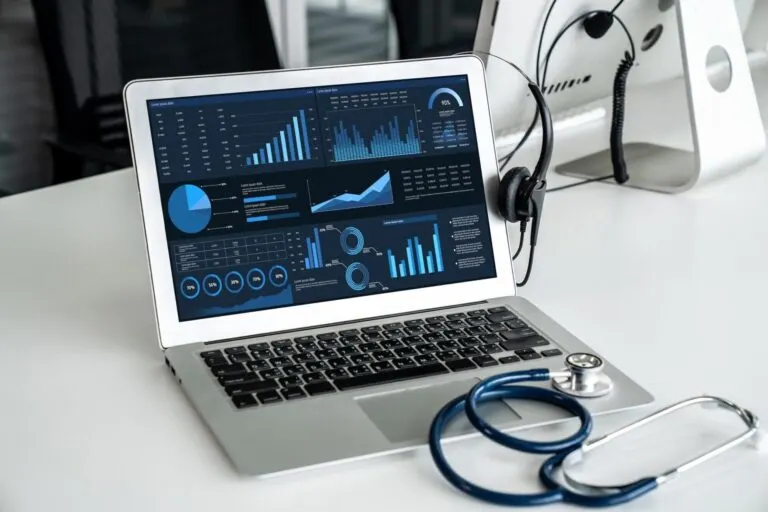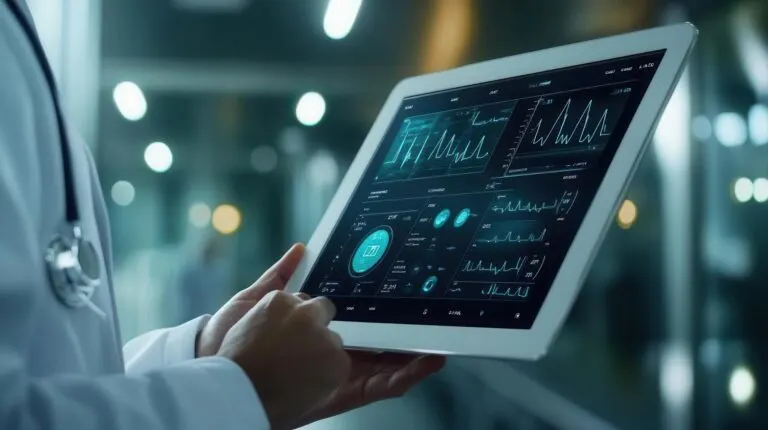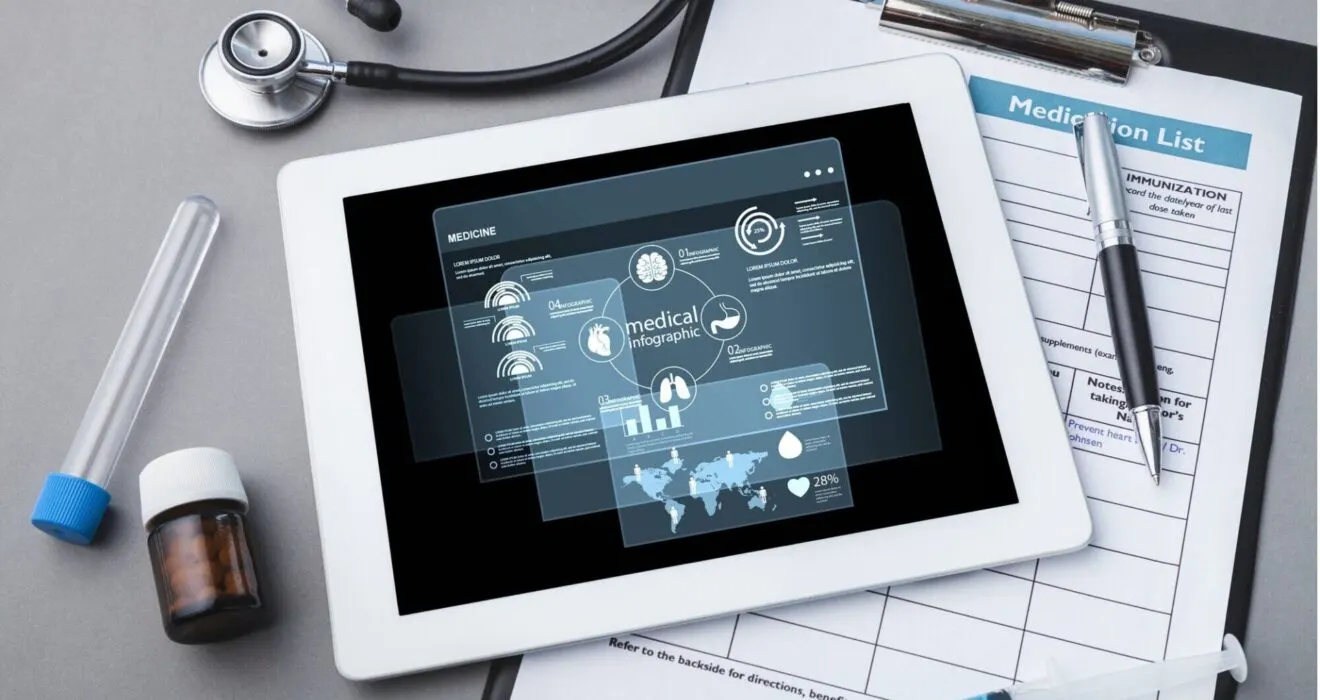How Data Analytics is Shaping the Future of Healthcare
1. Overview of Data Analytics in Healthcare
In the fast-paced world of healthcare, data analytics serves as a crucial tool in IT consulting, enabling professionals to interpret vast amounts of information to enhance patient outcomes and operational efficiency. With advancements in cybersecurity, cloud computing, and IT services, healthcare organizations can securely process and store data while maintaining compliance. Software development and managed IT services play a key role in optimizing healthcare analytics, ensuring data security and seamless integration into existing systems. By leveraging network security, IT support, and innovative IT solutions, healthcare providers can make data-driven decisions that improve care delivery and streamline operations.
The Evolution of Data Analytics in Healthcare
Data analytics in healthcare has come a long way from scribbled notes on clipboards. It’s now a powerhouse tool, crunching numbers and patterns to guide decision-making and shape the future of medicine.
Key Benefits of Data Analytics in Healthcare
Think of data analytics as a superhero cape for healthcare. It helps in predicting outbreaks, personalizing treatments, and even saving costs by optimizing operations. It’s basically the Avengers of the healthcare world.

2. Applications of Data Analytics in Patient Care
When it comes to patient care, data analytics is like a cool sidekick, helping healthcare providers tailor treatments and monitor patients from afar.

2.1 Personalized Medicine and Treatment Plans
Gone are the days of one-size-fits-all treatments. Data analytics swoops in to create personalized treatment plans based on individual patient data, making healthcare more effective and efficient.
2.2 Remote Patient Monitoring and Telemedicine
With data analytics, healthcare can reach patients wherever they are. Remote monitoring and telemedicine use data to keep tabs on patients, making healthcare more accessible and convenient.
3. Improving Healthcare Operations with Data Analytics
Data analytics isn’t just for patient care—it’s also a game-changer in IT consulting, helping healthcare organizations optimize resources and streamline administrative tasks. With advancements in cybersecurity, cloud computing, and IT services, healthcare facilities can securely manage and analyze data while ensuring data security. Software development and managed IT services enable seamless integration of analytics tools, improving efficiency and decision-making. By leveraging network security, IT support, and innovative IT solutions, healthcare providers can enhance operations, reduce costs, and improve overall workflow management.
3.1 Optimizing Resource Allocation and Staffing
Data analytics plays matchmaker between resources and demand, ensuring hospitals have the right staff and equipment at the right time. It’s like having a crystal ball for healthcare operations.
3.2 Streamlining Administrative Processes
Paperwork and administrative tasks can be a headache in healthcare. Data analytics steps in to streamline processes, making life easier for healthcare providers and ensuring smoother operations.

4. Enhancing Disease Prevention and Management
Data analytics isn’t just a sidekick—it’s a key player in IT consulting, helping detect diseases early, manage population health, and make healthcare smarter and more proactive. With robust cybersecurity and cloud computing, healthcare organizations can securely analyze vast amounts of data while ensuring data security and compliance. IT services, software development, and managed IT services play a crucial role in integrating analytics into healthcare systems for better decision-making. By strengthening network security, leveraging IT support, and implementing innovative IT solutions, healthcare providers can enhance patient care and optimize overall health management.
4.1 Early Detection through Predictive Analytics
Predictive analytics is like having a healthcare crystal ball, spotting potential health issues before they become full-blown problems. It’s all about catching things early and staying one step ahead.
4.2 Population Health Management Strategies
Data analytics helps healthcare providers take a bird’s eye view of population health, identifying trends, risks, and opportunities for preventive care. It’s like having a health strategist in your corner, making sure everyone stays healthy and happy.
4.2.1 Population Health Management Strategies
-
Data Quality and Integration Challenges: In the world of healthcare, data is as valuable as the "take one a day" recommendation on a vitamin bottle. However, ensuring the quality and seamless integration of healthcare data can feel like trying to read a doctor's handwriting. From different systems using varied formats to the sheer volume of data being collected, healthcare organizations face a unique set of challenges in harnessing the power of data analytics. But fear not, dear reader, for where there are challenges, there are also opportunities to revolutionize healthcare delivery and outcomes through the effective use of data.
-
Ethical and Regulatory Considerations: When it comes to data analytics in healthcare, navigating the ethical and regulatory landscape can feel like walking through a medical textbook written in ancient Greek. Issues of patient privacy, consent, and data ownership are paramount in healthcare analytics. Furthermore, keeping up with the ever-evolving regulatory requirements can be a daunting task. Balancing the potential benefits of data analytics with ethical considerations and regulatory compliance is a tightrope act that healthcare organizations must master to leverage data effectively.
4.2.2 Data Privacy and Security in Healthcare Analytics
-
HIPAA Compliance and Data Protection Measures: Imagine a healthcare data breach as the equivalent of a surgeon operating blindfolded – chaotic, dangerous, and likely to result in some serious consequences. Protecting sensitive patient information is crucial in healthcare analytics, and adherence to regulations such as the Health Insurance Portability and Accountability Act (HIPAA) is non-negotiable. Implementing robust data protection measures, encryption protocols, and access controls are essential to safeguard patient privacy and prevent unauthorized access to sensitive healthcare data.
4.2.3 The Role of Artificial Intelligence in Healthcare Data Analysis
-
Machine Learning in Diagnostics and Treatment Planning: Enter artificial intelligence, the stethoscope of the digital age, revolutionizing IT consulting and cybersecurity in healthcare data analysis like never before. Machine learning algorithms process vast amounts of data with the speed and precision of a seasoned surgeon, enhancing cloud computing, IT services, and software development in the healthcare sector. From diagnosing diseases to personalizing treatment plans, AI strengthens managed IT services and network security by uncovering hidden insights and improving patient outcomes. By integrating IT support, data security, and innovative IT solutions, healthcare providers can harness data-driven insights to enhance care, advance medical research, and optimize healthcare management.



